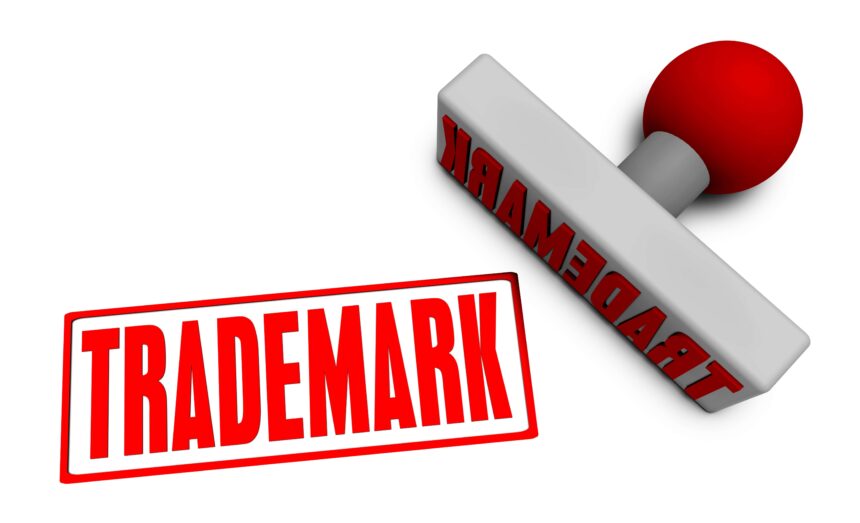Introduction
In the ever-evolving landscape of commerce, trademarks serve as vital identifiers for goods and services, enabling consumers to distinguish between different brands. However, as markets expand and new businesses emerge, the risk of trademark dilution increases. Trademark dilution occurs when a mark’s distinctiveness is weakened, either through unauthorized use or through the association of a mark with unrelated goods or services. This article explores the consequences of trademark dilution, examining its legal implications, impact on brand reputation, and the steps businesses can take to protect their trademarks.
Understanding Trademark Dilution
Definition of Trademark Dilution
Trademark dilution refers to the lessening of the capacity of a famous mark to identify and distinguish goods or services, regardless of the presence or absence of competition between the parties or the likelihood of confusion. This concept was established to protect famous trademarks from uses that do not necessarily cause confusion but still erode their distinctiveness. Trademark dilution is classified into two main types: dilution by blurring and dilution by tarnishment.
Types of Trademark Dilution
- Dilution by Blurring: This occurs when the distinctiveness of a trademark is weakened through its association with a wide range of unrelated goods or services. For example, if a well-known brand like “Nike” were to be used in connection with a completely unrelated product, such as a brand of perfume, it could dilute the distinctiveness of the Nike mark by associating it with products outside of its original category.
- Dilution by Tarnishment: This type of dilution happens when a trademark is used in a way that harms its reputation. For instance, if a famous brand were to be associated with low-quality or inappropriate products, the negative association could tarnish the brand’s image and reputation.
Legal Framework for Trademark Dilution
The legal framework governing trademark dilution varies by jurisdiction. In the United States, the Lanham Act provides federal protection against trademark dilution for famous marks. Under Section 43(c) of the Lanham Act, a trademark owner can bring a lawsuit against another party for using a mark that dilutes their famous mark. The law requires that the mark be famous, that the use by the defendant is commercial, and that it causes dilution of the famous mark.
The Consequences of Trademark Dilution
Legal Consequences
- Injunctions: One of the primary legal remedies available to trademark owners facing dilution is the ability to seek an injunction. An injunction is a court order that prohibits the defendant from using the diluting mark. Obtaining an injunction can be crucial for a trademark owner to prevent further dilution and protect the integrity of their brand.
- Damages: Trademark owners may also seek monetary damages as a result of dilution. If the dilution has caused financial harm, the trademark owner may be entitled to recover lost profits or damages caused by the erosion of brand value. The specific damages available depend on the circumstances of each case and the extent of the dilution.
- Attorney’s Fees: In some cases, the prevailing party in a trademark dilution lawsuit may be entitled to recover attorney’s fees. This provision is often a powerful deterrent against potential diluters, as the financial implications of a legal battle can be significant.
Impact on Brand Reputation
- Loss of Consumer Trust: Trademark dilution can lead to a loss of consumer trust in a brand. When consumers encounter a well-known trademark associated with unrelated or subpar products, their perception of the brand can be negatively impacted. This erosion of trust can result in decreased consumer loyalty and reduced sales.
- Brand Equity Erosion: A strong trademark contributes to a brand’s equity, which is the value derived from consumer recognition and loyalty. Trademark dilution undermines this equity, making it more challenging for brands to maintain their market position. As a result, companies may find it difficult to introduce new products or enter new markets under their existing brand.
- Market Confusion: Although trademark dilution is distinct from trademark infringement, the two concepts are closely related. Dilution can create market confusion, leading consumers to associate a famous mark with inferior products or services. This confusion can diminish the perceived quality of the trademarked goods or services, impacting overall brand perception.
Financial Consequences
- Decreased Sales and Revenue: Trademark dilution can directly affect a company’s bottom line. When consumers lose trust in a brand, they are less likely to purchase its products or services. This decrease in sales can lead to significant financial losses for the trademark owner, particularly if the brand relies on its reputation to drive sales.
- Increased Marketing Costs: To combat the effects of trademark dilution, companies may need to invest heavily in marketing and public relations campaigns to restore their brand image. These efforts can be costly and time-consuming, diverting resources from other critical business functions.
- Valuation Implications: Trademark dilution can impact a company’s valuation, particularly during mergers, acquisitions, or investments. Investors and potential buyers may view a diluted trademark as a liability, leading to reduced offers or lower overall company valuations.
Long-Term Business Consequences
- Difficulty in Expanding into New Markets: Companies with diluted trademark registration usa may face challenges when trying to enter new markets or launch new products. A tarnished brand reputation can hinder consumer acceptance and create barriers to entry in competitive markets. Potential customers may be hesitant to engage with a brand that has suffered dilution, limiting growth opportunities.
- Increased Regulatory Scrutiny: Businesses with diluted trademarks may attract increased scrutiny from regulatory agencies. In some cases, the negative associations created by dilution can lead to investigations into the company’s practices or products. This scrutiny can result in reputational damage and further legal challenges.
- Brand Rehabilitation Efforts: If a brand suffers from dilution, the recovery process can be lengthy and arduous. Companies may need to undertake comprehensive brand rehabilitation efforts, which could involve rebranding, repositioning, or launching new marketing campaigns to restore consumer confidence. These efforts often require significant resources and may not yield immediate results.
Challenges in Proving Trademark Dilution
- Famous Mark Status: To succeed in a trademark dilution claim, the plaintiff must demonstrate that their mark is “famous” as defined by the Lanham Act. This status can be difficult to establish, as it requires evidence of widespread recognition and distinctiveness. Brands may struggle to prove fame, particularly if they are not household names.
- Commercial Use Requirement: Trademark dilution claims require that the defendant’s use of the mark is commercial in nature. Proving commercial use can be challenging, especially in cases involving non-commercial or artistic uses of the mark.
- Evidentiary Burden: The burden of proof in trademark dilution cases often falls heavily on the plaintiff. They must provide substantial evidence to demonstrate the extent of the dilution and its impact on the brand. This evidentiary burden can complicate legal proceedings and increase the cost of litigation.
Prevention of Trademark Dilution
Proactive Brand Management
- Regular Monitoring of Trademark Use: Companies should actively monitor the marketplace for unauthorized uses of their trademarks. This monitoring can help identify potential dilution threats early on, allowing for prompt action to protect the brand’s integrity. Regular audits of the market, including online platforms and social media, can help uncover unauthorized uses that may dilute the trademark.
- Enforcement of Trademark Rights: It is essential for trademark owners to enforce their rights consistently. Taking legal action against infringers and diluters sends a strong message that the trademark owner is serious about protecting their brand. By being proactive in enforcement, companies can deter potential diluters from using similar marks that could harm the brand.
Clear Brand Positioning
- Establishing Distinctive Branding: Developing a strong, distinctive brand identity can help reduce the risk of dilution. Brands should focus on creating unique trademarks that stand out in the marketplace. Distinctive branding not only enhances consumer recognition but also provides a stronger legal basis for protecting the trademark from dilution.
- Educating Employees and Partners: Companies should educate their employees and business partners about the importance of trademark protection. Providing training on proper trademark usage and the potential consequences of dilution can help create a culture of respect for intellectual property within the organization.
Trademark Registration
- Registering Trademarks: Trademark registration provides legal benefits that can help protect against dilution. Registered trademarks enjoy presumptive validity and can establish the mark’s fame more easily in legal proceedings. Businesses should consider registering their trademarks with the appropriate government authorities to strengthen their legal position.
- International Protection: For companies operating in multiple countries, seeking international trademark protection can help safeguard against dilution on a global scale. Treaties such as the Madrid Protocol provide a streamlined process for registering trademarks in multiple jurisdictions, enhancing protection against potential dilution threats abroad.
Conclusion
The consequences of trademark dilution can be far-reaching, affecting a brand’s reputation, financial performance, and long-term viability. Trademark owners must understand the implications of dilution and take proactive steps to protect their marks. By monitoring the marketplace, enforcing their rights, and maintaining a strong brand identity, companies can mitigate the risks associated with trademark dilution. Additionally, understanding the legal framework governing trademark dilution and seeking professional assistance when necessary can empower businesses to safeguard their valuable intellectual property effectively. Ultimately, prioritizing trademark protection is essential for maintaining brand integrity and ensuring continued success in the marketplace.







